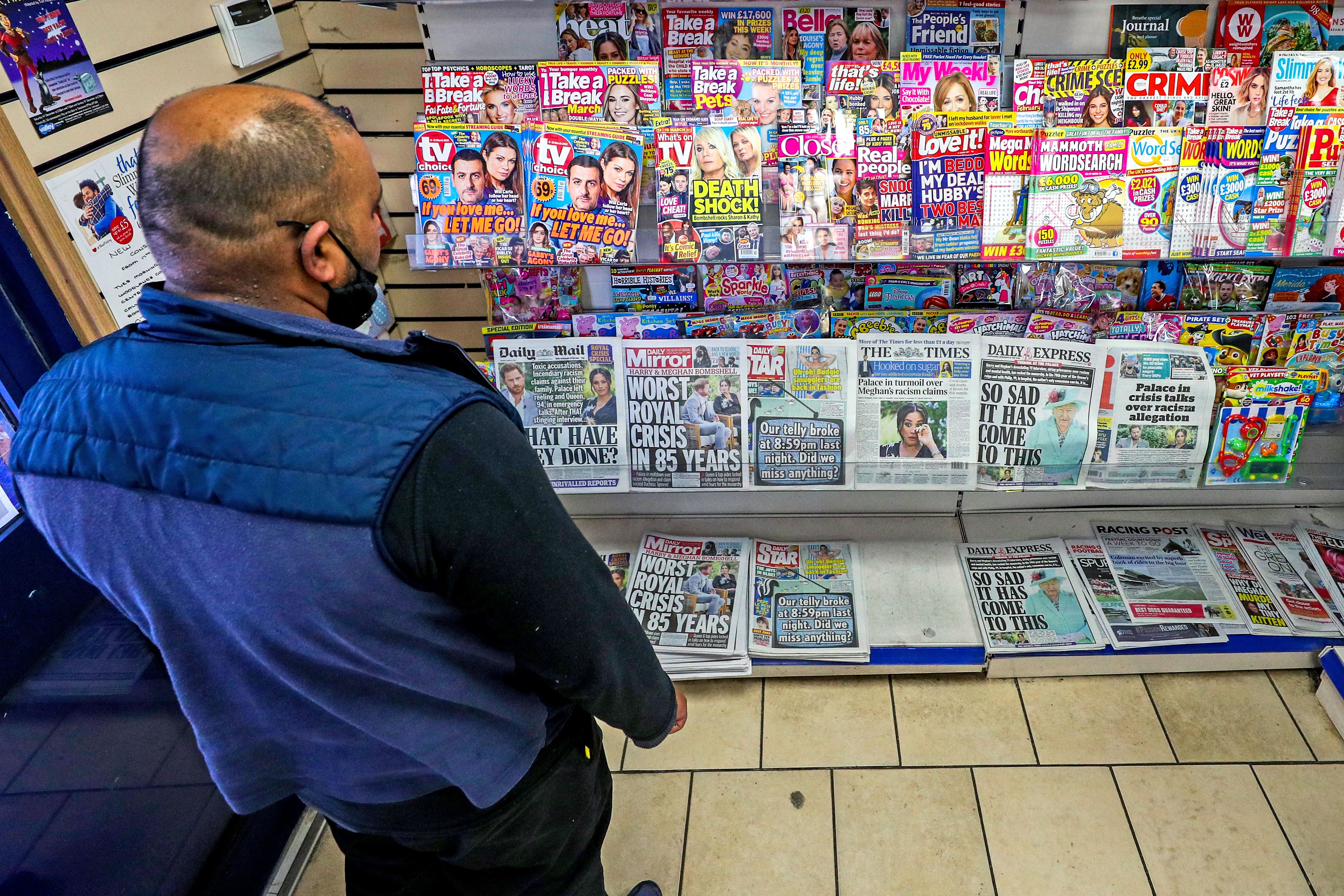Local papers need new support to survive, say MPs
Local newspapers have been among those hit hardest by the drastic changes in the news industry, with many forced to close in recent years.

Your support helps us to tell the story
From reproductive rights to climate change to Big Tech, The Independent is on the ground when the story is developing. Whether it's investigating the financials of Elon Musk's pro-Trump PAC or producing our latest documentary, 'The A Word', which shines a light on the American women fighting for reproductive rights, we know how important it is to parse out the facts from the messaging.
At such a critical moment in US history, we need reporters on the ground. Your donation allows us to keep sending journalists to speak to both sides of the story.
The Independent is trusted by Americans across the entire political spectrum. And unlike many other quality news outlets, we choose not to lock Americans out of our reporting and analysis with paywalls. We believe quality journalism should be available to everyone, paid for by those who can afford it.
Your support makes all the difference.Ministers have been warned that local journalism will struggle to survive without new support and fresh thinking from the Government.
The Digital, Culture, Media and Sport (DCMS) Committee found that, while some small publishers have adapted to the challenges of declining advertising revenue and the shift to a largely online readership over the last two decades, the position of many papers remains precarious.
Local newspapers have been among those hit hardest by the drastic changes in the news industry, with many forced to close in recent years.
The cross-party committee of MPs has called on the Government to consider making it easier for local news organisations to achieve charitable status, as well as encouraging more philanthropic donations to publishers.
The disappearance of local news providers, which have always acted as the eyes and ears of their readers and held local decision-makers to account, has ripped a hole in the heart of many communities
Its acting chairman, Damian Green, said: “The disappearance of local news providers, which have always acted as the eyes and ears of their readers and held local decision-makers to account, has ripped a hole in the heart of many communities.
“Worryingly it is the most deprived areas of the country that are most likely to miss out on coverage, compounding the disadvantages they already face.”
The committee’s report follows the Cairncross Review in early 2019, which considered how a sustainable future for British journalism could be achieved.
Among the solutions offered by the committee is a review of the rules around statutory notices – still an importance source of funding for local papers – due to concerns that some of the “outdated” criteria is excluding newer publications.
MPs also raised concerns that the largest, often corporate, owners of local titles often benefit disproportionately from Government support, with the committee calling for an audit of the public money used to support local journalism.
The committee said it should be “followed by an analysis of whether this money can be more fairly distributed and better used to promote innovation”.
Without more support and a rebalancing of the rules to help smaller publishers, the decline in local journalism and all the negative impacts associated with it will continue
BBC proposals that local radio stations share more content and broadcast less unique local programming, as part of a push towards a “digital-first” strategy, are also described as concerning.
The committee warned that plans to “direct more resources to its online local news services may risk harming commercial news publishers” and called on the broadcaster to reconsider its plans.
Mr Green said: “While there are many success stories of innovation, the very nature of having smaller audiences and limited reach means local publishers find it hard to float in a market that rewards scale.
“The sector can have a sustainable future but, without more support and a rebalancing of the rules to help smaller publishers, the decline in local journalism and all the negative impacts associated with it will continue.”
The National Union of Journalists (NUJ) welcomed in particular a call from the committee for a long-term fund for public interest news, which MPs suggested should have a remit to support innovation.
Seamus Dooley, NUJ assistant general secretary, said the union “shares many of the MPs’ concerns over the threats to the quality and coverage of local news”.
He added: “The report’s proposals are very welcome, and the emphasis on smaller publishers is especially appreciated.”
A Department for Digital, Culture, Media and Sport spokeswoman said: “Local journalism is essential to a healthy democracy and we are supporting the sector, with measures from tax reliefs on local newspapers to funding to help newsrooms innovate and become more sustainable.
“We will soon bring forward our game-changing legislation giving new powers to the digital markets regulator. It will ensure news publishers are paid fairly and drive greater transparency on the algorithms dominant tech firms use to drive traffic and revenue.”